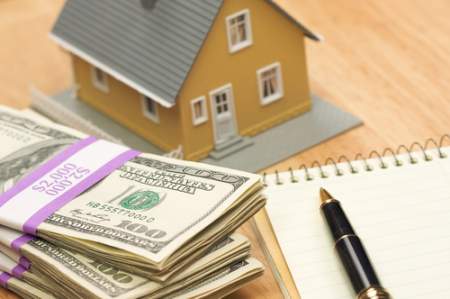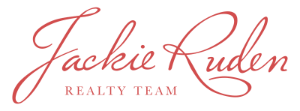Owning a home is at the core of every American Dream. Fortunately, there are many ways that you can acquire a home for you and your family, the most popular being getting a mortgage loan from a financial institution to finance the purchase of a ready house. Every seller’s dream, however, is to find a ready buyer who has the cash to pay for the home and be done with the paperwork.
If you have saved your money over a long time or lady luck blew your way and you can now afford to buy a house, this post is for you if you are considering buying your dream home in cash.
Financial Considerations When Buying with Cash
 Buying a house with cash is a good idea for you if:
Buying a house with cash is a good idea for you if:
You have a steady source of income or considerable savings: If you have saved over the years to afford a house, it is a good sign that your financial discipline is beyond reproach. If you won the lottery, or experienced a huge financial windfall
Home prices are stable in the neighborhood in which you are buying: It is a big risk to buy a home if there is a chance that its value will drop within a few years. Should this happen, you will lose a lot of money on paper and will have limited recourse to salvage your money.
You will have no problems paying for homeowner’s insurance, taxes, water, and other utilities: Note that the cost of maintaining a property and taxes depend on the value of the home. Therefore, before you pay cash for your dream home, calculate how much it will cost you to insure, and pay taxes for it, and how much utilities will cost you over a few years.
You can afford to maintain and repair the property: When you become a homeowner, you will be responsible for its maintenance and repairs – from the small basic such as fixing a leaking faucet to major ones such as replacing the roof. Therefore, before choosing to pay cash, be sure to factor in these costs, and to have an emergency fund to cover any unexpected expenses.
Paying cash has tax advantages: Depending on where you live, paying cash for a home only makes sense if it ultimately saves you money on taxes when compared to mortgage. Before you make up your mind to pay cash for a house, consult your tax or financial advisor to know if there are any tax advantages you can benefit from.
Determining Your Budget
The top benefit of paying cash for a house is that you get to spend a lot less than you would paying for the house over many years because of interest. Most sellers would be more willing to give concessions to cash buyers than those who still have to chase mortgage financiers with papers. Here are a few things you must consider while budgeting for your new home:
- Set a firm price limit and a list of things the house must have, then calculate the house price from there. Depending on how much cash you have in the bank, it is advisable that you know how much you are willing to spend on the actual purchase, and how much houses that meet all your checklist items will cost you. From here, it will be easier to find out what to compromise if necessary – the neighborhood, the value of the house, or items on your checklist.
- Remember that it will always cost you more than the listing price: Before you finally become a home owner, there are many other side expenses that you will incur from the moment you decide to go on house hunting to the moment you receive house ownership papers. These costs may vary greatly as they are influenced by many factors such as taxes, appraisal fees, and closing costs.
- If you cannot avoid a bidding war, budget for a higher house price. If you have $300,000 to spend, for instance, you might find the perfect house only to find yourself in a bidding war with a mortgage buyer who is willing to go as high as $350,000. To avoid getting locked out, depending on the state of the real estate market, you can hunt for houses with price listings of between $220,000 and $270,000.
What are First-Time Buyer Benefits?
The process of buying your first home may be intimidating, but it offers more benefits to first-time buyers over buyers who have owned a home before.
Even when paying for the home in cash, as a first-time homebuyer, you will have special access to various loans and financial breaks that are designed to help you get into your home faster and with less cost. These programs often offer subsidized interests on loans, lower down payments, and more relevantly in your case, a limit to the fees that the state, seller, or lender can charge you.
Some states, to encourage the millennials to invest in homes, offer First-Time Homebuyer Credit, a tax provision introduced in 2008 under the Housing Economic and Recovery Act (HERA) introduced to nurture confidence in the mortgage industry after the 2008 housing bubble. As you budget for your next home, consult your real estate agent to know if you qualify for such tax reliefs.
How can a Real Estate Agent Help?
 Unless you are a real estate agent yourself and you know the neighborhood in which you want to buy your first home very well, it is always advisable that you get an experienced agent who understands the area. Navigating the real estate market and making a purchase is very tricky, but an agent can save you time, money, and the stress of making the right choice in the face of many variables.
Unless you are a real estate agent yourself and you know the neighborhood in which you want to buy your first home very well, it is always advisable that you get an experienced agent who understands the area. Navigating the real estate market and making a purchase is very tricky, but an agent can save you time, money, and the stress of making the right choice in the face of many variables.
It is also a good idea to use a real estate agent because a professional will know best when to play hardball during negotiation and when to yield to avoid losing a good house over price. Besides, an agent will understand all the processes involved in buying a home in a particular market and will save you the trouble of struggling to stay on top of the process.
Finally, a home buyer will take you more seriously when you show up for an open house with an agent. Nothing screams, “I am serious about wanting this house, and I will pay in cash,” than having a real estate agent do the bidding for you.
Making a Cash Offer
Once you find the house you want to buy, let the seller know that you will be purchasing in cash. Most sellers prefer cash over mortgage buyers for the simple reason that the buyer’s final word is not contingent on some third-party condition such as loan approval. Therefore, to show how serious of a buyer you are and get more negotiation strength over the seller, show that you are a serious buyer who will follow through. In most cases, you will be able to force the final selling price lower if the seller can perceive your deal as a ‘sure thing’.
What Happens During Negotiations?
To a seller, a buyer offering to buy a home with cash is irresistibly attractive because all the hassle of dealing with financing is eliminated. However, you should also realize that while you are attractive to the seller, you may have to compete with other all-cash buyers. The good thing is that most all-cash buyers are bargain hunters and if they are interested in a home you want to buy, they will help you drive the price down.
One strategy to beat other cash and mortgage buyers is to make your final offer up-front. Most sellers, having dealt with other spirited buyers with lower offers, are more likely to take the offer or put up a weak negotiation fight. Also, do not ask for closing costs at the negotiation stage to avoid putting the seller off.
Depending on how strongly you want the house, you can consult your real estate agent for market-specific advice on the right negotiation approach. In a tight inventory market, you have lower negotiation power than you would in a saturated market.
If the competition with other buyers is stiff, it is recommended that you do not ask the seller to fix minor problems you may have discovered during inspection, instead only requesting for any major structural and safety fixes. You can in turn factor in the costs of minor fixes in your final offer.
If the negotiation is not going favorably to you, you can sweeten the deal by making small procedural adjustments. If the house you want to buy is vacant, you may propose a close closing date to hasten the deal – ideally within 10 business days.
Pros of Buying a House with Cash
There are many advantages of buying a house with cash. The most noteworthy are:
- The final purchase price will always be lower compared to how much it would cost paying mortgages. You will not only save money on interest but also on other associated costs that typically spread through the duration of the payments.
- Sellers just love all-cash homebuyers. When you pay cash, everything becomes easier – less bureaucracy, no third-party variables that may scuttle the purchase at the eleventh hour, and more importantly, greater negotiating power.
- Cash buyers, especially first-time homeowners, often close on their new homes faster and at lower closing costs. Cash eliminates many expenses associated with closing on a mortgage, and the transactions and paperwork often take as little as a week to finalize.
- It is easier for cash buyers to get home equity loans. Once the home purchase is closed, the new owner will be able to apply for home equity loans and other lines of credit to take advantage of the confidence financial institutions have on cash home buyers.
- Fluctuation in the housing market will have little impact on cash buyers. Homebuyers paying mortgages suffer the most when there are fluctuations in the market, most notable higher mortgage payments that ultimately make them pay more than the house is worth.
- A house bought with cash is easier to sell and it offers the homeowner a great sense of security and ownership.
Cons of Buying a House with Cash
Buying a house in cash may seem like a no-lose situation, but there are few disadvantages you should know:
- First off, you will lose liquidity since paying so much money upfront for anything is going to require a great deal of cash. This explains why it only makes sense to pay cash if you will still afford to maintain it and pay for utilities and taxes.
- Paying cash will mean losing all leverage. Leverage in real estate can have its upsides such as favorable mortgage interest rates that may make money during inflationary periods.
- All-cash homebuyers have little to no tax advantages. This is because the American real estate tax code is set to offer favorable tax treatment for mortgage payers.
Buying a home by paying cash is a big financial commitment that will tie up a lot of liquid assets for buyers who are able to swing in the initial purchase costs. Paying cash offers the buyer many benefits and greater power over mortgage buyers, but it is highly advisable that you choose this path only if you do not have to struggle to afford it.
Your real estate agent is the best source of information about the local community and real estate topics. Give Jackie Ruden Realty Team a call today at 435-272-7710 to learn more about local areas, discuss selling a house, or tour available homes for sale.





